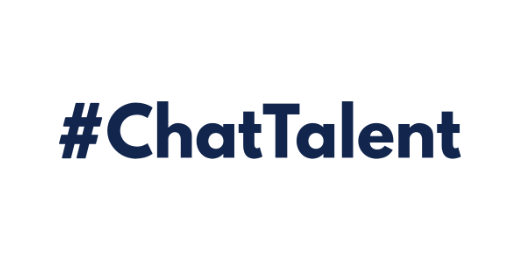It’s not about boats and it’s not some secret SAS torture treatment.
So what is it?
Onboarding, may seem like a relatively new term in the world of talent acquisition/recruitment, however it has been around since the ’70s It’s not about boats and it’s not some secret SAS torture treatment. and is also known as “organisational socialisation”, it refers to the mechanism through which new employees acquire the necessary knowledge, skills, and behaviours in order to become effective organisational members, you might well know them as employees.
But how can you master it?
Some business start onboarding on day one with meetings or induction.
However, successful employee onboarding is not an event that takes place on your new employee’s first day at the office. It is a continuous process that starts the moment your best candidate accepts your job offer.
It’s tempting to skimp on the onboarding experience by kidding yourself: “They’re intelligent, they’ll figure things out by themselves”.
A smart business knows its employees are an important part of their success.
Investing quality time in your employees is the best way to keep attrition low and your return on investment high.
According to Monster, the average staff turnover rate in the UK is 15% – this % varies by industry.
Hubstaff suggests, 22% of staff turnover occurs within the first 45 days; numerous reports point to businesses with a successful and robust onboarding programme performing better and having increased revenue growth than counterparts who execute a poor experience.
The evidence, therefore, seems overwhelming that to treat people right before they join your business will ensure they stay longer, are happier and more productive.
Seems like a no brainer – right?
Before they join
Before a new employee starts, ensure someone takes responsibility for dealing with any queries such as the sending and return of their contract, on day 1 where to park, if lunch will be provided, what to bring, and the dress code; I’ve seen people turn up at head office on day 1 only to find out they were “expected” somewhere else.
Sort IT equipment before they start, there is nothing worse than a first day that starts with “Sorry IT has never set anyone up on day 1 – so take a read through these docs, and we will get you online as soon as possible”.
Are they getting a company car? Has it been organised? Is their mobile phone ready?
Check their resignation went smoothly and they have no concerns around their finish date/start date.
Keep in regular contact during their notice period, it’s a stressful time leaving a business so do some “hand-holding”, be there to listen to their fears, concerns – this is when the dreaded counter offer happens, prepare them for it.
Consider inviting them to an informal staff night/event, break them in gently, perhaps a meal or lunch
Create a business overview
Who are your customers/stakeholders?
What’s the culture?
Who are the key team members? Consider having this online/on your intranet and updated regularly with pictures and perhaps some fun or memorable facts about the team
Provide a Mentor
Allocate a point of contact, someone senior and approachable that can act as a sounding board, someone to ask the “silly questions”. Remember senior staff will not automatically know how to work the telephone system or transfer calls on day 1 and do not want to appear foolish, having someone they trust creates a safe space for them
Set attainable 90-day goals
Give your new employee direction and actionable items right from the beginning. By identifying a few easy-to-reach goals, they will find immediate success and be confident about their decision to join your business.
Be sure to guide them to the resources and introduce them to other people who can help them along the way. A well laid out plan sets up a win/win for the company and new employee.
Do regular one-on-ones
Agree and stick to one – to – ones to look at progress, challenges, issues, the sooner the employee becomes accustomed to speaking about the business and what the expectations are the quicker they will fit in and be productive.
Have them shadow multiple team members/departments
Allowing them to see how other departments operate is key, particularly if they will eventually have interaction with them. Who do they talk to about invoice or pay queries? Who deals with IT issue? etc
Compile FAQ’s
What questions does every new employee ask you in the first weeks and months? Compile these questions with detailed answers and review during the onboarding process. Add to the list as new questions are asked – they will be invaluable for each new employee. Constantly review and delete or update as needed.
Make first impressions count
Every person they come into contact with should exhibit consistency around the business; if you live your values, this will come easy and naturally – being authentic is key.
Take it slowly
Don’t be tempted to cram everything into 1 or 2 days. Good onboarding should feel natural not rushed, review what they have seen, cover any unclear areas.
Consider these 2 experiences
Day 1
John turns up, reception is not expecting him, sitting in reception he spots someone from the interview, awkward handshake, puzzled looks. “ah crap, you start today, erh, take a seat, let me find Alice” John feels awkward, this is the first contact since accepting the role and he has had a hard time with his previous employer being awkward about leaving, wavered a couple of times and now thinking if this was the right decision.
Day 1
Jenny was sent a welcome email a couple of days before she is due to start, she has already built up a great rapport with her mentor Ali.
Ali is at reception to meet her when she arrives on the first day. A quick tour of the building, pointing out where to eat, hang coats, etc. Some introductions to teams/departments (no need to remember everything as it is contained in a pack specially prepared for Jenny).
Desk is all set up with logins sorted, mobile phone is charged and ready to go. A short team intro with everyone spending a couple of minutes introducing themselves and what they do. The team has all signed a welcome card and there is some corporate swag to keep.
The morning flies by and it is time to have lunch with the manager. As first days go this has been a pleasant experience and in keeping with the way the company handled the interview and offer.
There are tons of examples of organisations onboarding, some may be regarded as OTT, for example, Twitter has over 75 steps and handoffs between Recruiting, HR, IT, and Facilities. Before the employee sits down, they have their email address, a T-shirt, and a bottle of wine waiting. New employee desks are strategically located next to key teammates they will be working with. On the first day, new team members have breakfast with the CEO followed by a tour of the company office, before group training on the tools and systems relevant to their role.
I came across a new phrase whilst researching this piece, again from Twitter “from Yes to Desk” this covers the period from offer acceptance to starting on day 1, pretty neat don’t you think?
We have all been there, the new person on day 1, what are your most memorable onboarding experiences – good or bad.






